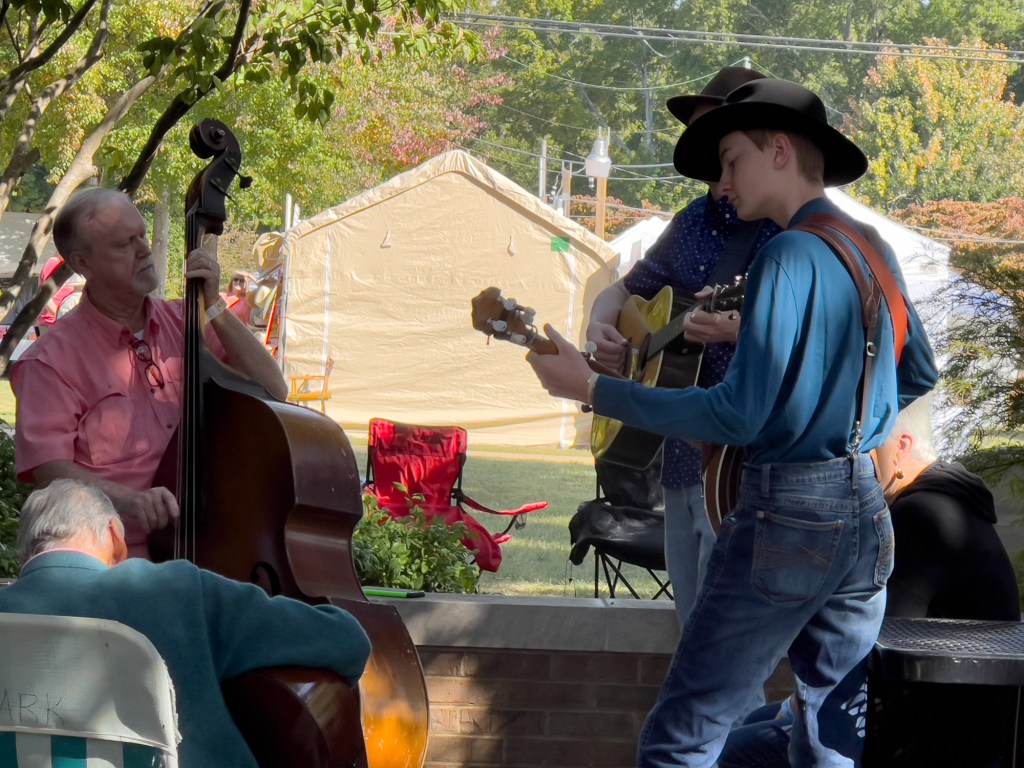Appalachian English’s storied history
Published 9:00 am Wednesday, October 12, 2022

- A group of musicians perform at the Fiddlers Convention.
The dialect of Appalachia is often regarded by linguists as archaic and, perhaps, a bit odd. The rugged and unique language displays the remnants of the Scotch-Irish travelers and other immigrants who settled the mountains in the 18th century.
According to Cratis Williams in an address to the North Carolina Literacy and Historical Association at Appalachian State University, “the dialect of the Appalachian people is the oldest living English dialect, older than the speech of Shakespeare, closer to the speech of Chaucer.”
The preservation of language in Appalachia is directly consequential to the preservation of the tradition of oral storytelling. Without a shared dialect and understanding of vernacular, the people of Appalachia would be faced with barriers to sharing their stories with one another.
In Appalachia, you “might could” hear phrases like “it’s getting airish,” “beauty never made the kettle sing,” “where’s there’s bees there’s honey,” “settin’s cheaper’n standin’,” and other vibrant and descriptive phrases filled with the wisdom of the mountain ancestors.
The Appalachian dialect shares similarities with white-southern speech and African-American Vernacular English, such as the morphing of the long i into an ah, but differentiating the Appalachian dialect from other dialects isn’t hard for the trained ear.
“Appalachian folk appear to speak with fixed chins and half closed mouths,” explained Williams. This leads to the fracturing of all short vowels except ō.
This phenomenon causes words like “bat” to become “ba-it” and hit to become “hi-ut.”
“The long u sound in Appalachian speech, like short and long o, is singularly pure,” said Williams. This is most often heard in words with a double-o, such as “roof.”
Along with the long u, being singularly pure, natives of Appalachia often add r to words with open endings, making words such as “window,” “winder” and “pillow,” “piller.” With this, the g in -ing, will go unsaid in words like “fiddlin’.”
“We cannot say that they leave off the g; they never did get around to adding it, which appears to have been an unfortunate accident in the development of our language,” explained Williams.
Beyond grammar conventions, the Appalachian dialect offers a unique vocabulary set.
“Coal oil,” in lieu of kerosene, and “poke-sallet” instead of pokeweed salad, not to be confused with the substitution of “poke” for bag.
While the conversations surrounding the linguistics, myths, legends, and culture of Appalachia is often white-centric, the impact of the cultural and language contributions of Black Appalachians cannot go unacknowledged.
As it pertains to linguistics, the impact of AAVE on the Appalachian and white-southern dialects can be seen in missing copulas. The missing copula is indicative of the English-based creole developed by slaves who had to find a way to communicate with one another through language barriers.
This characteristic of the Appalachian and white-southern dialects could have come from white children spending a significant amount of time with slave caregivers and their children during formative years.
These are only a few examples of the unique attributes of the Appalachian dialect.
The dialect that is unique to the people of Appalachia isn’t indicative of a lack of education or a resistance to change, but rather a commitment to a retention of culture and identity, allowing Appalachians a sense of solidarity and belonging.
“Isolated from the outside world, and shut in by natural barriers, they have for more than two centuries preserved much of the language of Elizabethan England,” Josiah Combs explained in his entry in Vol. 5 No. 1 of “A Guide to Appalachian Studies.”
With the evolution of the language of Appalachia over the centuries, the unique isolation of the mountains has allowed its people to cling to the linguistic identities given to them by their settler ancestors and the dialect has retained its importance to the folklore of Appalachia.
As the series on oral storytelling continues this month, we will explore the impact dialect has on the traditions of oral storytelling.





